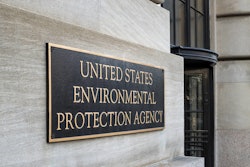WASHINGTON (AP) — The Trump administration will not reappoint half the expert members of a board that advises the Environmental Protection Agency on the integrity of its science, the latest in a series of moves that could benefit industries whose pollution the government regulates.
Deborah L. Swackhamer, chairwoman of the Board of Scientific Counselors, confirmed Monday that nine of the 18 outside experts on her panel will not serve a second three-year term. The affected board members' terms expired April 30.
Experts are limited to serving two terms on the board, and Swackhamer said that in the past those completing their first term would typically have been reappointed. Four other board members just completed their second terms, meaning 13 of the 18 seats on the panel are now vacant.
EPA spokesman J.P. Freire said the agency's new leadership wants to consider a wider array of applicants, potentially including those who may work for chemical and fossil fuel companies.
"We are going to look at all applicants that come in, because this is an open and competitive process," Freire said.
The counselors are typically top academic experts in their fields tasked with helping ensure the agency's scientists follow best practices.
EPA Administrator Scott Pruitt has long been a fierce critic of the agency he now leads, saying its scientists often fail to weigh the cost of implementing new regulations on businesses. Pruitt, a lawyer who previously served as Oklahoma's elected attorney general, has moved in recent weeks to roll back Obama-era limits on toxic pollution from coal-fired power plants and countermand a push to ban a pesticide that peer-reviewed studies said may harm the developing brains of young children.
Robert Richardson, one of the scientific counselors not reappointed to a second term, said Pruitt's public comments reflect a misunderstanding of the role of scientists, which is to accurately collect data and tell what the evidence shows.
"The science will show the impact of a particular chemical or toxic substance, but we would never say it should be banned or regulated in a particular way," said Richardson, an ecological economist at Michigan State University. It is up to policy makers, Richardson said, to recommend new regulations and consider whether the benefits outweigh the costs.
"The EPA's mission is to protect human health and the environment," he said. "It is not to minimize cost to industry."
___
Follow Associated Press environmental reporter Michael Biesecker at Twitter.com/mbieseck






















